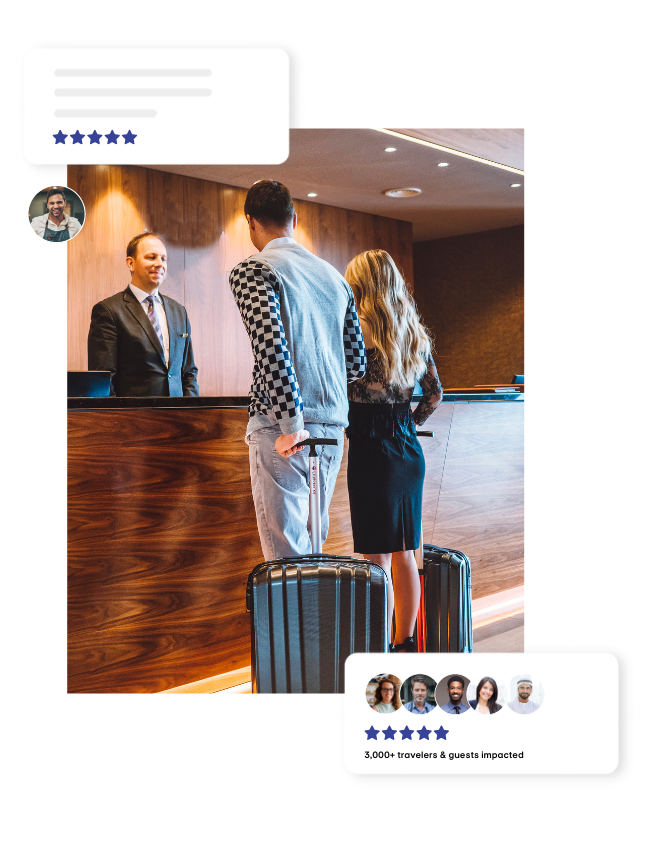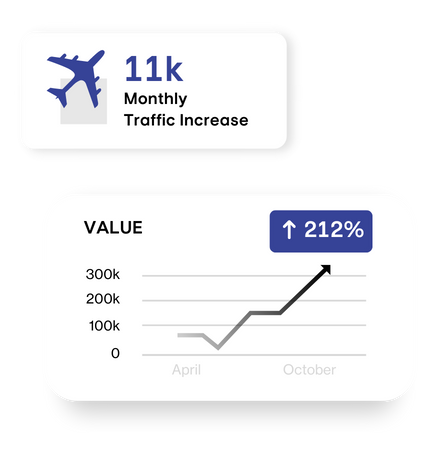Managed SEO
February 6, 2023 2023-09-13 17:16Managed SEO
FULLY MANAGED SEO
Scale to New Heights With Fully Managed SEO
Our fully managed SEO services are designed to boost your search engine rankings with minimal effort on your part. From comprehensive keyword research to advanced on-page optimization, we handle everything, leaving you free to focus on growing your business.

DO YOU NEED AN SEO STRATEGY?
Benefits of Fully Managed SEO
WHAT WE OFFER
What's Included in Fully Managed SEO?
Our fully managed SEO service is the complete package for businesses looking to climb the ranks of search engine results. Our team of experts will analyze, strategize, and execute a personalized plan tailored to your specific needs. All you have to do is sit back and enjoy the journey.

Solo SEO
Strategy
SEO Strategy
& Content
Fully Managed
SEO Campaign

CASE STUDIES
How We've Helped Others Succeed
Check out our success stories and case studies of how we've helped others reach their SEO goals. Discover the data-driven strategies that have set us apart from other content agencies.
300,000 Views
By optimizing their content strategy, we helped one travel brand jump to 300,000 monthly pageviews.
217% Increase
We helped a travel publication increase their organic traffic by 217% in just four months.






HOW DOES IT WORK?
The Sherpa Way SEO Process
Step 1: SEO Analysis
Before developing any SEO strategy, we will perform an initial consultation and audit. During the consultation call with you and your team, we’ll walk you through a travel industry-specific SEO questionnaire to figure out what work you’ve done in the past and where you’re having the most trouble. After, we’ll take that information to perform a full audit, which includes assessing technical issues, broken links, mobile optimization, website speed, site structure, and more.
Step 2: Diagnosis & Initial Report
You’ll receive a full keyword report and analysis along with opportunities for improvement and content gaps your competitors aren’t currently capitalizing on. This isn’t your full strategy. Rather, it’s an initial diagnosis of what we believe is affecting your current SEO strategy and how we can start to work towards improving it, including any major technical issues that need to be fixed.
Step 3: SEO Strategy
Based on our thorough research and audit, we’ll propose a personalized course of action to help you achieve your SEO goals. This plan often includes a complete overview of your content strengths, weaknesses, and potential untapped opportunities. And, it will include a freshly gathered list of keywords we discovered by thinking about your target audience’s needs and your brand’s goals.
Step 4: Implementation
After highlighting the necessary SEO actions needed to help your brand achieve your content objectives, we work with you to implement the tactics and strategies detailed in your plan of action. This often includes content creation, on-page optimizations and the creation of content briefs or templates for your team to use.
FREQUENTLY ASKED QUESTIONS
Learn About Managed SEO
What is SEO?
SEO, or search engine optimization, is the process of making a website more visible to search engines. It involves (among many other things) improving a website’s title, description, and keywords so that it appears higher in the results list when someone searches for a related term. Ultimately, the goal of SEO is to attract more visitors to a site by improving its position in the search engine results list. The best part? It’s basically free traffic!
What are keywords?
Keywords are the words and phrases that people use to search for information on the internet.
When someone types a keyword into a search engine, the search engine looks through all of the websites that contain that keyword and displays the most relevant results.
To ensure people can find your website, it’s important to choose the right keywords. For example, if you own a boutique hotel in Barcelona, you should include keywords that your ideal guests would use, such as “luxury hotel in Barcelona” or “where to stay near El Raval.”
By including these keywords on your website, you will increase the chances that people will find your site when searching for lodging in your city.
Does my brand need SEO?
If we’re being honest…it depends. When you invest in good SEO strategies and content, your site appears higher in the search results. This means that more people are likely to find and visit your site. And that can lead to more customers and more sales for your business.
However, not all businesses rely on searches to acquire clients. If the majority of your leads come from referrals, for example, then you probably don’t need SEO at the moment.
How long does it take for SEO to work for travel and lifestyle brands?
Ah, the golden question!
This is a difficult question to answer because it depends on a number of factors, including the competitiveness of your keywords, the quality of your content, and the strength of your website.
Generally speaking, however, you can expect to see results within about three to six months. Of course, this is just a general timeline and your results may vary. We don’t often suggest starting SEO work unless you’re committed to at least six months.
But if you’re patient and consistent with your SEO efforts, you should start to see an uptick in your traffic and rank over time.
What's the difference between technical SEO vs. on-page SEO?
Technical SEO generally refers to the back-end infrastructure of your website and making sure it is set up for search engine success. This includes things like site speed, XML sitemaps, and schema markup.
On-page SEO, on the other hand, is all about optimizing the content on your website for the search engines. This includes things like keyword research, title tags, and meta descriptions.
While both technical and on-page SEO are important for any website that wants to rank well in the search engines, they each play a unique role in the overall optimization process.
Ultimately, technical SEO lays the foundation for a successful SEO campaign, while on-page SEO helps to drive traffic and conversions.
What are Google ranking factors?
Well first, it’s important to note that (unfortunately) Google doesn’t publish a list of ranking factors. If only!
While there is no definitive list of all the factors that Google takes into account, there are some that are well-known and widely accepted.
These include things like the quality of a website’s content, the age of the domain, the number of backlinks, and the loading speed of the website. All of these factors play a role in helping Google to determine where a website should appear in the search results.
They’re also all factors we take into consideration when creating SEO strategies for travel brands and creating or optimizing content.
What's included in an SEO strategy?
At Sherpa Way SEO, we personalize every single strategy. There’s really no on-size-fits-all strategy because every business is unique in its industry, audience, competition, and keywords.
This is especially true in regards to the travel industry as each brand is likely targeting wildly unique audiences in various geographical locations.
However, every single one of our SEO strategies involves in-depth keyword research, competitor and industry analysis, on-page SEO analysis and improvements, and technical SEO.
What kills SEO?
Inconsistency, irrelevance, and inauthenticity are all horrible for SEO.
But what really kills SEO is when business owners try to game the system by using shortcuts and black hat techniques.
Search engines are constantly changing their algorithms in an effort to keep up with the latest trends and weed out those who are trying to take advantage of the system. In 2023, with the rise of low-quality, AI-generated content, this is more important than ever.
As a result, those who try to cheat the system by using keywords stuffing, link buying, or plagiarized AI content will eventually be penalized.
In the end, the best way to succeed with SEO is to focus on creating high-quality content that is relevant to your target audience.
Which SEO tools do you use?
We rely on a variety of free and paid tools to help us conduct research and optimize your SEO content. While we don’t wanna name any names, we pay for the best courses and software to help us create your optimized content.
We are also certified as a Semrush agency partner as of 2023.
Is SEO better than PPC?
It’s not necessarily about one being “better” than the other. They’re different and accomplish different goals.
The easiest way we explain this to clients is by saying that SEO is better for building sustainable, long-term traffic. PPC is better for instant traffic.
The main advantage of SEO is that it’s a long-term strategy: once you’ve achieved a good ranking, you should continue to get traffic even if you don’t keep working on your SEO with the same consistently (you’ll always need to make minor adjustments, though). However, SEO can take a while to get results.
The main advantage of PPC is that it’s a quick and easy way to get traffic to your site. You can also target your ads very specifically, which means that you’re more likely to reach your exact audience.

Ready to start?
Go ahead. Say yes to a new adventure.